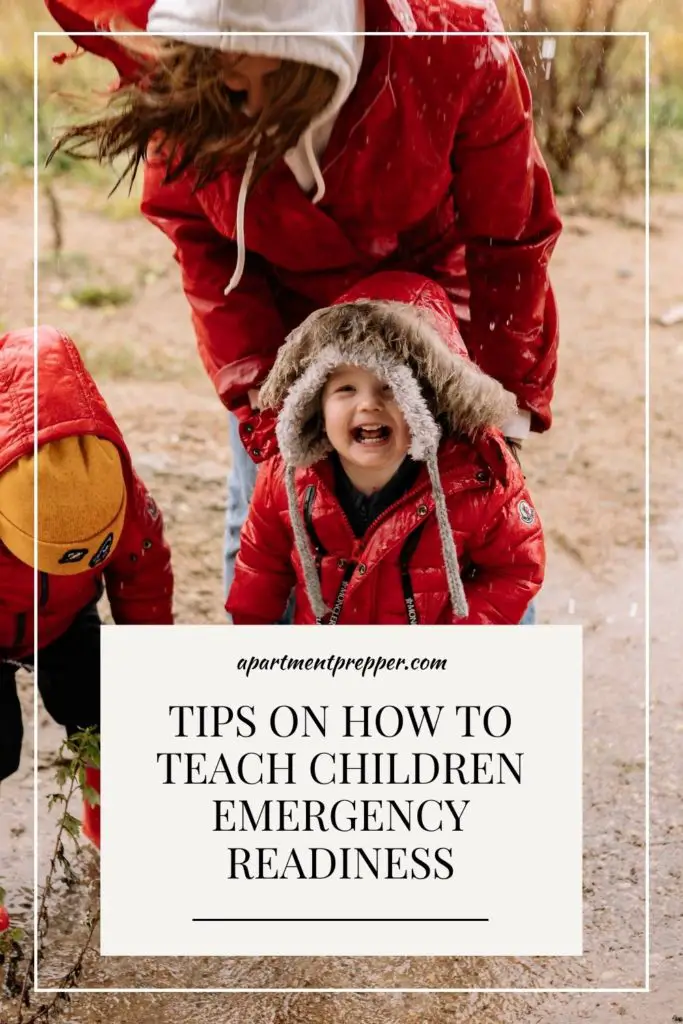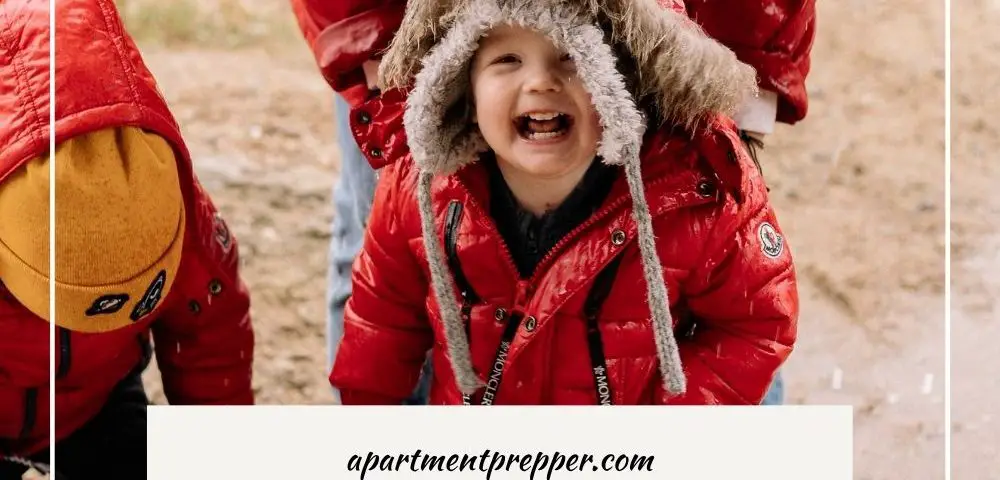Written by Christina Lee
Nowadays, the news will tell horror stories of active shootings, hate crime, weather-related disasters, and so on. You can’t turn the TV on without someone talking about a tragic event or two.
This can especially take an emotional toll on parents who want nothing more than to keep their little ones safe. So, how can you protect your children from the perils of today’s world?
First things first: You’ll need to talk to them about emergency readiness. This refers to the idea that one can be ready for an emergency should it arise. In fact, emergency readiness is for anyone, including children. Therefore, this should be the first step in protecting your children.
Here are 5 tips on how to teach your children to be ready for any emergency:
Put Your Child’s Feelings First
First, think about how your child will react to certain topics. For example, how does your child feel about scary things or scenarios popping out of nowhere? Or how would they react to someone coming with a weapon at hand?
Too often, children can get scared of things that they don’t understand. As a result, it can cause emotional scarring, which can affect their mental and social skills in the long-run.
While your child may be scared at something like a bad person brandishing a weapon, it’s important for him or her to run to safety no matter how afraid they are. If they know what to do in situations like this, they’ll be less afraid.
Talk To Your Child About The Weather
Next, teach your children about the weather.
The weather can take any form: rain, snow, sunshine, sleet, etc. However, natural disturbances like thunderstorms, hurricanes, and tornadoes can be scary to children, especially if they manage to cause destruction on homes, neighborhoods, etc. Therefore, it’s important to show your children how to prepare for any weather scenario. Here are some topics to discuss when talking about weather disturbances:
Power outages caused by weather
Shelters for things like tornadoes and hurricanes
Refraining from going outside due to harsh weather
Safe places to head for when earthquakes happen
Avoiding flooded areas
Staying clear from doors and windows during weather disturbances, etc.
Also, talk to children about how bad weather doesn’t last for long. Let them know that some weather conditions come and go, so that they don’t think that such conditions are permanent.
Teach Your Child About 9-1-1
9-1-1 is an important phone number that everyone should remember, including children.
First, explain what that phone number is, and why it’s important for emergencies and scary situations (e.g. robberies, violence, etc.). You may want to practice with them by going through played-out scenarios. Scenarios help children to assess the problem, take note of important things, and relay them to authorities. Also, teach them how to speak to authorities when they call 9-1-1.
By teaching them about 9-1-1, your child will know who to turn to if there was ever an emergency.
Talk About Having An Emergency Plan
Now, it’s time to put together an emergency plan. Ideally, you’ll need to have an emergency plan for almost any situation or disaster.
Suppose you want to have an emergency plan for, say, a fire emergency. How would you go about it? Well, your first step is to talk to your child about fire situations. Next, make sure you determine possible escape routes or exits like a door or a window. Then, create scenarios on what to do if certain doors or windows are blocked off during a fire. Afterwards, be sure to establish a safe meeting place for the family to go to once they get out of the home.
Now, when putting together an emergency plan, be sure to include an emergency supplies kit. In the kit, you have some of the following items:
Nonperishable food
Flashlights
Blankets
Water
Activities for children to do, etc.
Teach Your Child How To Cope
Finally, it’s important for children to learn how to cope after a disaster or a dangerous situation has happened. Watch for emotional signs and behaviors like:
Anger
Excessive crying
Eating too little or too much
Isolation
Depression, and so on
While the world might not seem fair to them, it’s still imperative that you show them how to overcome their feelings of sadness and disappointment. Let them know that they can talk to you about how they’re feeling, and that it’s okay to be scared. Also, give them time to process their emotions, so that they can eventually feel better.
Conclusion
So, there you have it!
As you can see, children can be ready for anything, once you teach them emergency readiness. Plus, be there for them whenever they experience big feelings like fear and sadness. Be a shoulder to cry on, whether things get tough during emergencies.
By making your child emergency-ready, they’ll know what to do, and how to feel, the next time something comes up. We wish you and your family the best!
About the author:
Christina Lee is a writer and editor at Academized and UK Writings. She is also a contributing writer for OX Essays. As a project manager, she oversees many projects in various companies in Ruckersville, Virginia. As a content writer, she writes articles about marketing news and tech trends.
We are an affiliate of Amazon.com, which means we received a small commission if you click through one of our Amazon links when you shop, at totally no cost to you. This helps keep the lights on at the blog. Thanks!



I wish you’d write some more kids books. Your first one my kids really enjoyed and there aren’t lots of kids books in the prepper mindset for kids. (More for YA). My kids like knowing things for “just in case” they are all under five. They like knowing we have just in case food and water in the car, and just in case jackets in the car…and so on. Kids are often affected by disasters and knowing ahead of time lessens the stress a lot for mine. Especially with the wildfires last year when we had to evacuate, they already knew we had planned for it and while they had some questions it wasn’t overly stressful for them. (And we were lucky to not loose our house.)
Hi Olivia, Thanks for the kind words-glad your kids enjoyed Jake and Miller. Sadly, the publisher isn’t interested in more of them, I’ll have to figure out how to self-publish 😉 It’s so important for kids to learn about being prepared, it helps them to cope and avoid fear. Sounds like your kids are on the right track! I appreciate your comment.
My family’s planning to set out a camp in the next two weeks…this is just so timely to read.